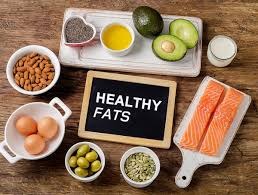Not all fats are created equal, and understanding the difference can be the key to a healthier lifestyle. While fats often get a bad reputation, they are essential for energy, cell growth, and the absorption of fat-soluble vitamins like A, D, E, and K. The trick lies in choosing the right types of fats and avoiding the harmful ones.
Healthy fats, such as monounsaturated fats found in avocados, olive oil, nuts, and seeds, and polyunsaturated fats present in fatty fish like salmon and mackerel, are vital for heart health and overall well-being. These fats can help lower bad cholesterol levels and reduce the risk of heart disease.
On the other hand, unhealthy fats like trans fats and excessive saturated fats can increase the risk of heart disease, stroke, and other health problems. Trans fats, often found in processed foods, baked goods, and fried items, should be avoided entirely. Saturated fats, found in butter, cheese, and fatty cuts of meat, should be consumed sparingly.
The World Health Organization (WHO) recommends keeping total fat intake at 30% or less of daily energy consumption, with saturated fats not exceeding 10% and trans fats limited to under 1%. Incorporating a variety of vegetable oils and maintaining a balanced fatty acid profile can further enhance health benefits.
So, the next time you plan your meals, remember to embrace the good fats and steer clear of the bad ones. Your heart and taste buds will thank you!
Sources: The Hans India, Healthline, KIMS Sunshine Hospital.
Advertisement
Advertisement




